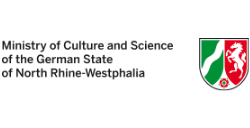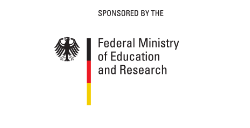Quick facts
Project title:
CaBOL - Caucasus Barcode of Life
Object of research:
Barcoding, Caucasus region, Biodiversity hotspot
Description
The BMBF-funded project Caucasus Barcode of Life (CaBOL) aims to catalogue numerous animal and plant species of the Caucasus. The DNA barcodes of these species will be stored in a reference database and made publicly available. Initially, the project focus lies on the species-rich south-west Caucasus, on the countries Georgia and Armenia. The Caucasus is one of our planet's biodiversity hotspots. Based on experience collected within the GBOL and GGBC projects, CaBOL will become a scaffold for ensuing applied biodiversity research and will further expand the educational infrastructure in the Caucasus region.
In the CaBOL-project, the ZFMK works closely with the following project partners: Ilia State University, Tbilisi; Agricultural University of Georgia, Tbilisi; Yerevan State University; Scientific Center of Zoology and Hydroecology, Yerevan; Georg-August-University Göttingen; University of Koblenz-Landau. Numerous colleagues from other institutes additionally support the project.
In order to establish a reliable reference database of DNA barcodes, animals and plants are collected and identified from various habitats in Armenia and Georgia. Based on the resulting DNA barcodes, a wide range of future applications can be built, all of which have in common that they rely on fast and accurate species identifications; the discovery of new species will equally be facilitated. A species catalog based on DNA barcodes allows the efficient detection of differences in the biodiversity of individual regions and habitats (also over time). These data, along with the DNA barcodes themselves, will promote Caucasian biodiversity research as a whole. As an important addition to barcoding, CaBOL invests in remote-sensing technologies and associated workshops. In an additional step to the regional inventory of individual species, further indicator variables are recorded with the help of GIS (Geographic Information System) and Remote Sensing and correlated with the occurrence of the studied species.
The barcode database is an elementary step towards the long-term goal of the CaBOL project: establishing a multinational biodiversity center in the Caucasus. The aim of this center is to foster international cooperation, improve scientific infrastructures, engage in education and research on Caucasian biodiversity, and to provide recommendations on its sustainable use. The infrastructure created through CaBOL ensures scientific training regarding modern methods in the Caucasus and thus strengthens social and economic development in a region with a very high and at the same time threatened biodiversity.
Location







